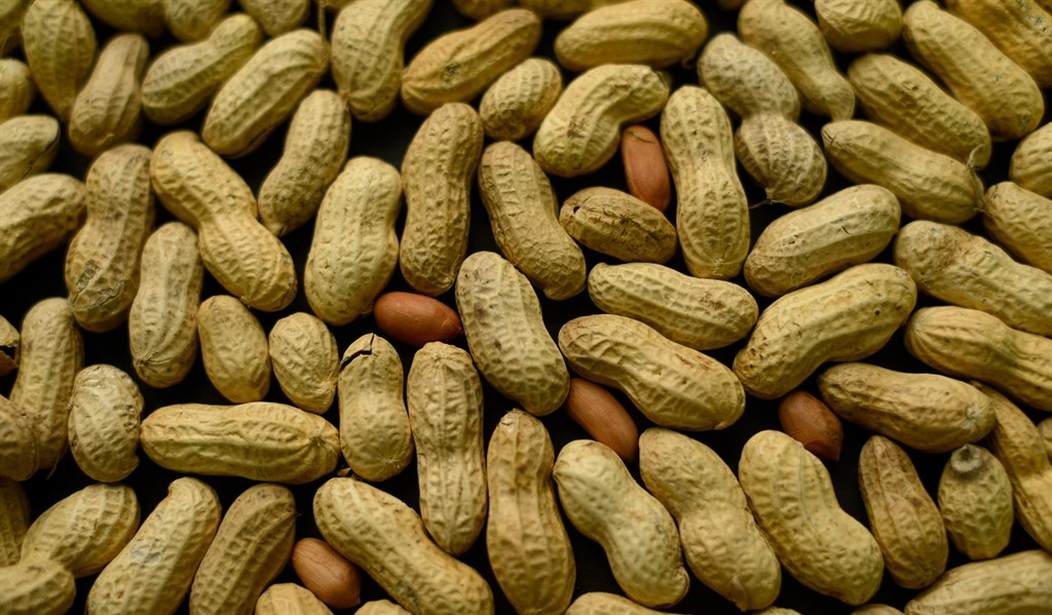With the exception of food stamps, which should have nothing to do with the farm bill, every program in the agency is meant to subsidize or boost the profits of farmers. We have such programs as the Dairy Margin Protection Program and the Dairy Market Stabilization Program. The former effectively guarantees profits for dairy farmers, and the latter is a complicated program meant to drive up milk prices to benefit small-scale dairy farmers. Then there are sugar tariffs, which are meant to artificially boost the profits of a few companies by keeping the price of sugar high in the United States at the expense of consumers and taxpayers.
In the same vein, we also have the peanut programs. The USDA recently announced that U.S. peanut farmers will produce 6.1 billion pounds this fall, on top of 2.9 billion pounds in leftover stockpiles. Total peanut demand isn't that high, and we will start the next year with a 3.2 billion-pound stockpile. And unless you like your peanut butter and jelly sandwich with a side of government subsidies, you should care.
An excessive supply of peanuts depresses the price of peanuts. Unfortunately for us, Uncle Sam won't let the market work its magic to eliminate excess supply. Instead, it subsidizes the farmers whose income might have otherwise suffered from the reduction in price by paying them most of the difference between a reference price of $535 per ton and the market price. Obviously, the lower the price the higher the payout. That's a terrible incentive structure, if you ask me.
Recommended
In addition, the government takes on the extra peanuts and stockpiles them at a cost. Finally, the loans that peanut farmers may have taken based on the value of their crops, which they may not be able to repay, are guaranteed by your hard-earned tax dollars.
Let me sum this up for you: First, the government gives an incentive to peanut farmers to take on loans that they wouldn't have to pay back if the price of peanuts were to fall under an arbitrary price set by politicians and bureaucrats in Washington. The result of this mad-scientist peanut plan is something like this: Overproduce peanuts and depress peanut prices; don't pay your loans; and collect taxpayers' money. According to the Congressional Budget Office, this year's overflow of peanuts will cost about $2 billion in subsidy payments to farmers by 2018.
But misery, as we know, loves company. In a May article for The Wall Street Journal, James Bovard documents how the U.S. government uses its stockpiles of peanuts to decimate peanut farmers' earnings in poor countries by dumping free peanuts under the cover of foreign aid. In particular, he writes about the devastating impact of a plan by the Obama administration to unload a million pounds of its excess peanuts in Haiti through its food donation program.
The country has its own peanut farmers -- about 150,000 -- and they provide the foundation for the livelihood of about a half-million Haitians. Image what happens to these people when the U.S. government floods the market with free peanuts. Who will buy relatively expensive peanuts if they can buy subsidized American ones? This has been going on for so long that farmers have long known not to even bother bringing their crops to market when the American government is feeling "generous."
But the USDA's bureaucrats don't want to hear it. They claim that American "peanuts won't hurt Haitian farmers because they will be packaged in one-ounce bags that 'are to be consumed at school only,'" Bovard reports. Never mind that after the massive 2010 earthquake in Haiti, the then-president of Haiti begged the United States to "stop sending food aid" so that Haiti's economy could "recover and create jobs."
Make no mistake; all of the wasted money and the devastation created in Haiti only serve American farmers. And it all happens at the expense of taxpayers, consumers and competitors around the world.

























Join the conversation as a VIP Member